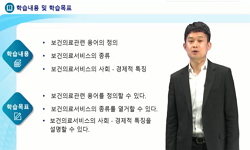Since the United Kingdom and the European Union jointly developed a Driver Drowsiness and Attention Warning system in 2021, the privacy of the interior space of Intelligent Connected Vehicles has been reduced due to safety requirements in the car, inc...
http://chineseinput.net/에서 pinyin(병음)방식으로 중국어를 변환할 수 있습니다.
변환된 중국어를 복사하여 사용하시면 됩니다.
- 中文 을 입력하시려면 zhongwen을 입력하시고 space를누르시면됩니다.
- 北京 을 입력하시려면 beijing을 입력하시고 space를 누르시면 됩니다.

Investigation of the Application of Personal Information Processing Rules in Intelligent Connected Vehicles
한글로보기https://www.riss.kr/link?id=A108442898
- 저자
- 발행기관
- 학술지명
- 권호사항
-
발행연도
2022
-
작성언어
English
- 주제어
-
등재정보
KCI등재
-
자료형태
학술저널
- 발행기관 URL
-
수록면
253-301(49쪽)
- 제공처
-
0
상세조회 -
0
다운로드
부가정보
다국어 초록 (Multilingual Abstract)
Since the United Kingdom and the European Union jointly developed a Driver Drowsiness and Attention Warning system in 2021, the privacy of the interior space of Intelligent Connected Vehicles has been reduced due to safety requirements in the car, increase or decrease due to the need for rescue positioning and accident verification in emergencies. ICV has become a typical product of deep integration, integrated application of traditional industry, AI, and information communication technology, and the transformation of vehicles into intelligent mobile terminals. However, massive information transmission involving multiple systems means that once an information security accident occurs in an Intelligent Networked Vehicle, it will seriously impact property, personal safety, and even national security. At the same time, personal information at a specific stage is continuously collected for calculation and analysis to improve intelligent networked vehicles' driving safety and intelligence. This process brings three risk patterns: data processing, technical compliance, and unclear specifications. These risks are formed in the critical links of information processing. Two significant problems are challenging to deal with existing regulations and difficult for enterprises to implement compliance construction, leading to the dilemma of personal information regulation in intelligently networked no vehicles. Especially on December 20, 2022, the Chinese smart electric vehicle Nio started being blackmailed by hackers, indicating a great risk of data theft by automobile companies. Attention should be paid to how to protect data. It must be more coordinated between laws, regulations, and technical standards.
A systematic supporting system needs to be formed to ensure the vitality of industrial development. Starting from the two-dimensional perspective of technology and law, this paper proposes a solution path of system Coordination, regulatory sandbox, and industrial autonomy by sorting out the contradictions between norms and technical processing to get rid of the existing dilemma of insufficient protection, insufficient regulation, and insufficient utilization, and realize industrial collaboration between personal information and internal.
1 The United Nations Economic Commission for Europe, "UN Regulation No. 157 - Automated Lane Keeping Systems (ALKS)"
2 Long Weiqiu, "The “Technology-Society + Economy” Paradigm of Artificial Intelligence Legislation ―Based on the Perspective of Leading the New Relationship between Law and Technology" (1) : 2020
3 Li Xiaolei, "The main defects and perfect countermeasures of the privacy agreement of network platform enterprises——An empirical study centered on the informed consent clause of the privacy agreement" (1) : 2022
4 Yu Xiaolan, "The Construction of the Right to Delete Information from the Perspective of Civil Code Compilation" (4) : 2018
5 Zhang Taolue, "Smart Car Personal Data Protection―Exploration and Enlightenment from the European Union and Germany" (4) : 112-, 2019
6 Zhao Jie, "Research on the International “Regulatory Sandbox” Model and Its Enlightenment to China" (12) : 2016
7 Wang Ying, "Research on Legal Access to Autonomous Driving:Routes, Challenges, and Solutions" (6) : 2021
8 Hu Ling, "Publicity and Realization of Personal Information from the Functional Perspective" (5) : 2021
9 Gao Fuping, "Personal Information Processing: The Regulatory Object of China’s Personal Information Protection Law" (2) : 2021
10 Zhu Yi, "On the Necessity and Importance of China's Automobile Industry to Participate in the Work of UN/ECE/WP29" (3) : 1999
1 The United Nations Economic Commission for Europe, "UN Regulation No. 157 - Automated Lane Keeping Systems (ALKS)"
2 Long Weiqiu, "The “Technology-Society + Economy” Paradigm of Artificial Intelligence Legislation ―Based on the Perspective of Leading the New Relationship between Law and Technology" (1) : 2020
3 Li Xiaolei, "The main defects and perfect countermeasures of the privacy agreement of network platform enterprises——An empirical study centered on the informed consent clause of the privacy agreement" (1) : 2022
4 Yu Xiaolan, "The Construction of the Right to Delete Information from the Perspective of Civil Code Compilation" (4) : 2018
5 Zhang Taolue, "Smart Car Personal Data Protection―Exploration and Enlightenment from the European Union and Germany" (4) : 112-, 2019
6 Zhao Jie, "Research on the International “Regulatory Sandbox” Model and Its Enlightenment to China" (12) : 2016
7 Wang Ying, "Research on Legal Access to Autonomous Driving:Routes, Challenges, and Solutions" (6) : 2021
8 Hu Ling, "Publicity and Realization of Personal Information from the Functional Perspective" (5) : 2021
9 Gao Fuping, "Personal Information Processing: The Regulatory Object of China’s Personal Information Protection Law" (2) : 2021
10 Zhu Yi, "On the Necessity and Importance of China's Automobile Industry to Participate in the Work of UN/ECE/WP29" (3) : 1999
11 Su Li, "Medical Informed Consent and Personal Freedom and Responsibility―From the Case of Xiao Zhijun's Visa Refusal" (2) : 2008
12 Zhao Zheng, "Lin Jing, Research on the Governance System and Supporting System of Data Elements in the Data Circulation Scenario" (2) : 2022
13 Xu Zimiao, "Legal regulation of intelligent networked vehicle data processing: reality, challenges, and approaches" (2) : 2022
14 China Automotive Engineering Research Institute Co., Ltd, "Intelligent Connected Vehicles Information Security Development Report" Social Sciences Academic Press 2021
15 EDPB, "Guidelines 01/2020 on processing personal data in the context of connected vehicles and mobility-related applications, Version 2.0. (after this, referred to as “EDPB Guidelines 2.0”)Faden RR, Beauchamp TL, a study of the impact of disclosed information" (1) : 1980
16 China Academy of Information and Communications Technology (CAICT), "Global Autonomous Driving Strategy and Policy Observation"
17 "Deloitte Limited research report. Autonomous driving under the new infrastructure: The battle between single-vehicle intelligence and vehicle-road coordination"
18 Wang Yuan, "Definition of the Concept and Judgment of Elements of Sensitive Personal Information―Centering on Article 28 of the Personal Information Protection Law" (2) : 2022
19 Zheng Ge, "Data Rule of Law and Future Transportation―A Discussion on Data Governance of Autonomous Vehicles" (1) : 2022
20 Hu Yuancong, "Challenges and Responses to the Road Traffic Safety Law by Self-Driving Vehicles" (1) : 2019
21 Paul Ohm, "Broken Promises of Privacy: Responding to the Surprising Failure of Anonymization" (6) : 2010
동일학술지(권/호) 다른 논문
-
- 현대중국학회
- 서창배
- 2022
- KCI등재
-
- 현대중국학회
- 양철
- 2022
- KCI등재
-
중국의 중재절차상 보전처분에 관한 연구: ‘중국과 홍콩 법원의 중재절차상 상호 보전처분에 관한 규정’을 중심으로
- 현대중국학회
- 하현수
- 2022
- KCI등재
-
중국 비은행 국제결제의 발전 경과와 한국의 외환거래법 개정에 대한 시사점
- 현대중국학회
- 서봉교
- 2022
- KCI등재




 KISS
KISS







